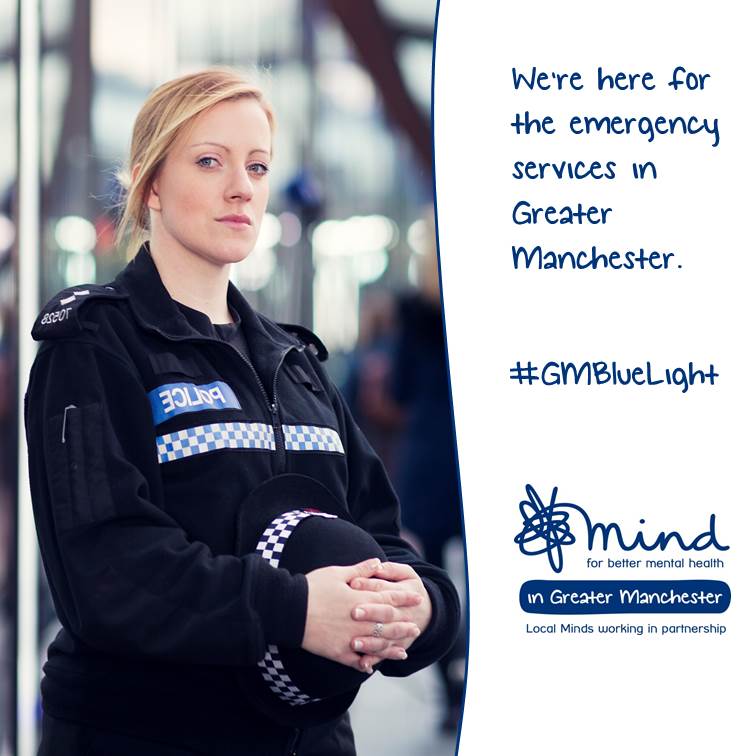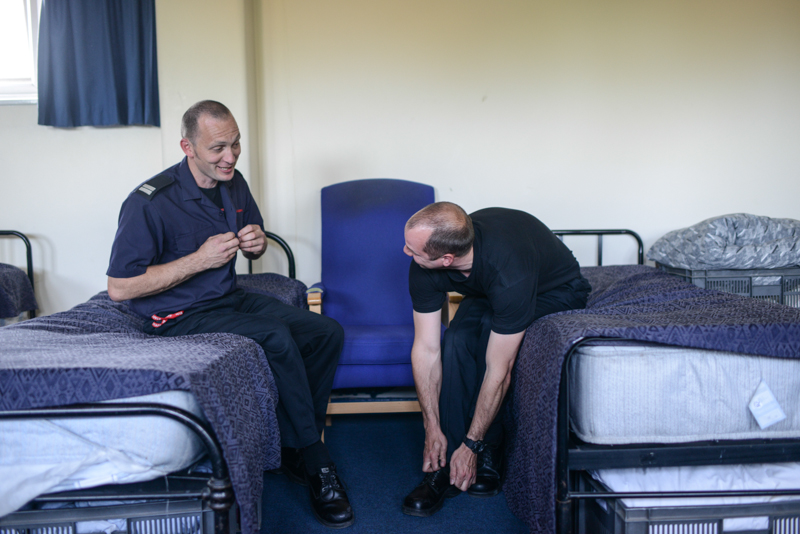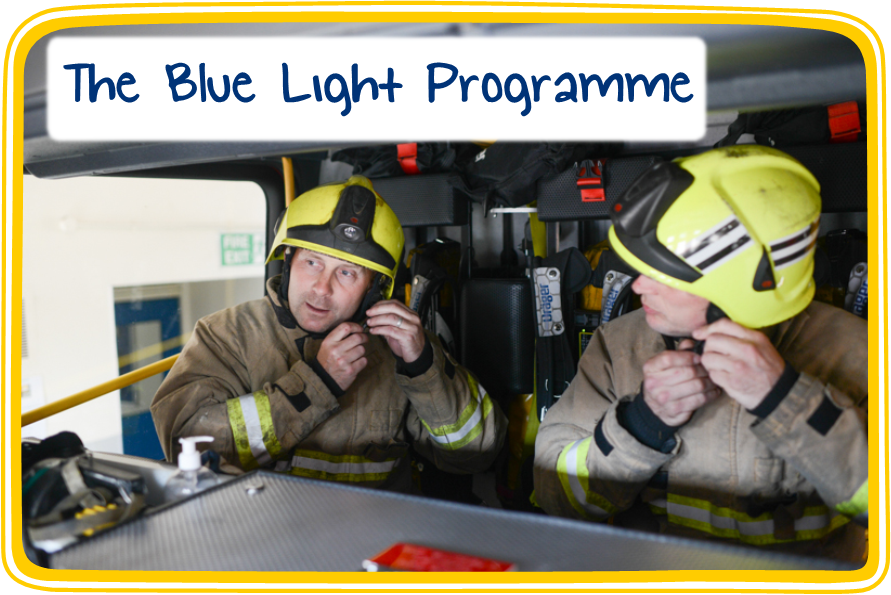Mind in Greater Manchester have this week announced their new ‘Blue Light Programme’, which aims to improve emergency service staff mental wellbeing by providing unique services, and destigmatising mental health among workers in the region.

Available to all Greater Manchester Fire, Police, Ambulance, and Search and Rescue personnel; the programme offers staff eight unique interventions from a menu of services – including:
-
Mindfulness
-
Counselling
-
CBT therapy
Which have been specifically designed to help individuals manage stress, build resilience and identify trauma.
Mind in Salford are one of the five local Mind organisations involved in the delivering the programme, which the organisation hopes will provide a much-needed layer of support for emergency services personnel. Chief Exec, Markus Greenwood stressed how important it is that staff have access to such services:
‘’This is a wonderful opportunity for Mind to help support our emergency services. They do fantastic work but it can be very stressful at times and we all need help when things are tough. We have a menu of tried and tested services on offer that will give a choice of interventions to help with stress and promote resilience for the personnel of these vital services.’’
As a national charity Mind have championed equality between mental and physical health for years, and are still a key figurehead in the push for better mental health support in workplaces. More recently the organisation has identified emergency staff as a specific group that is more at risk of experiencing mental ill-health – their latest research finding that 87.57% of personnel said they had experienced stress and poor mental health. Subsequently, the charity has committed £4 million to be spent exclusively on ‘Blue Light’ services since 2015.
Rob Potts, Assistant Chief Constable at Greater Manchester Police said:
“The wellbeing of our employees is paramount within a workforce that is frequently exposed to difficult, stressful and traumatic situations.
The Blue Light programme will help the way we change GMP, creating a work place environment that challenges the stigma surrounding mental health issues, whilst providing the best support and advice and ensuring we are all given the opportunity to reach our full potential.”

Who are Mind in Greater Manchester?
Established this year, the organisation is a partnership of Greater Manchester’s five local Minds, working together to ensure people experience better mental health, and support people to live well and feel valued in their communities and at work. By pooling their expert resources, the organisation hopes to offer targeted support that will dispel stigma and empower staff to overcome personal mental health struggles.
As well as the provision of services, Mind in Greater Manchester have declared clear intentions to put mental health front-and-centre of the region’s social, political, and commercial landscape by campaigning for change and delivering workplace training together.
Mind in Greater Manchester Coordinator, Stuart Lucas, this week outlined the organisation’s desire to make a concrete difference to the mental wellbeing of emergency services staff:
“Through our partnership of five local Minds we are working harder together to achieve better mental health for everybody. The Blue Light Programme is a Greater Manchester specific initiative to ensure that we can be there for those whose job is to be there for us.
The Blue Light programme illustrates our commitment to find positive ways to make sure Greater Manchester’s emergency services staff feel valued, are able to live well, and develop their full potential. We won’t give up until everyone experiencing a mental health problem gets support and respect.”
 Mental Health in Greater Manchester
Mental Health in Greater Manchester
Mental health has been firmly on the public agenda in Greater Manchester; last summer £134 million pounds was allocated to mental health services, with the ambition of putting mental health on ‘an equal footing’ with physical health. Part of this investment was used to set up the ‘Manchester Resilience Hub’, which was launched to support the victims and families of last May’s arena bombing. One year on, those directly involved – including emergency services staff – may still be feeling the mental impact of such a traumatic event.
Furthermore, Mental Health Awareness Week, which took place last month saw corporations in the region such as Barclays, Manchester Airports Group, PwC, Sellafield, and United Utilities support the ‘This is Me’ campaign, which encouraged staff to break the silence around mental health in the workplace.
Within the emergency services, recognition of staff mental health continues to grow and there is an increased appetite for extra support services. Wayne Norris, a Greater Manchester Firefighter and mental health activist explains:
“Over the past five years attitudes towards mental health in our workplace have gotten a lot better, but it’s still vitally important to get the issue out there.
We need to be able to walk in to work and tell someone what’s affecting us, and why it’s affecting us. Having Mind in Greater Manchester’s Blue Light Programme available is brilliant – hopefully it will help staff to improve their own mental health and continue speaking out.”
The Blue Light Programme is available now for any Greater Manchester emergency services employee or volunteer. To see the course details or to book on to a service, visit their website, or contact Mind in Greater Manchester’s Blue Light team directly on 0161 212 6461 or by emailing bluelight [at] gmmind.org.uk. Alternatively, individuals can approach their Wellbeing or HR departments, who can discuss the most suitable options with them and make a referral.

Additional Blue Light research statistics (2015) for journalists and communications departments:
Causes of poor mental health amongst emergency services staff:
- Excessive workload (56%)
- Pressure from management (55%)
- Organisational upheaval (52%)
- Long hours (45%)
- Exposure to traumatic incidents (42%)
More statistics on previous Blue Light Programmes elsewhere in the country can be found in Mind’s case for support.





